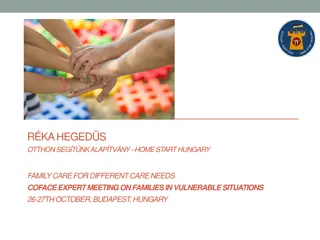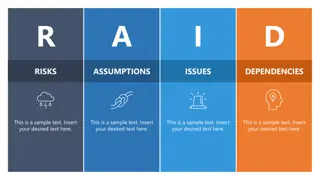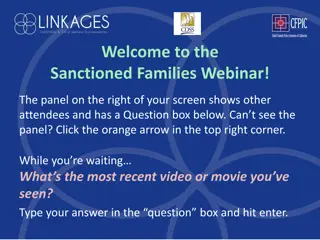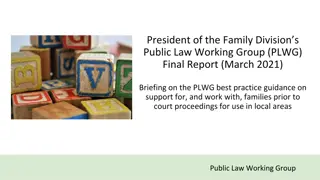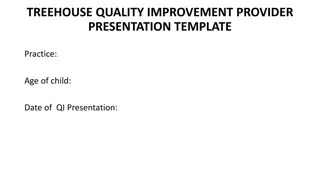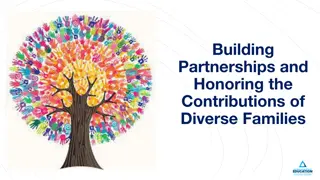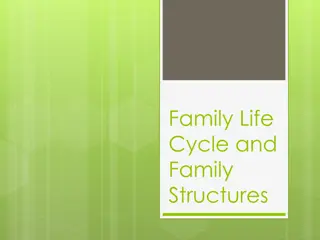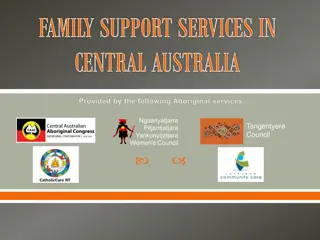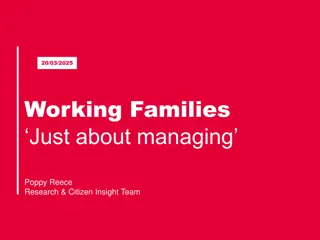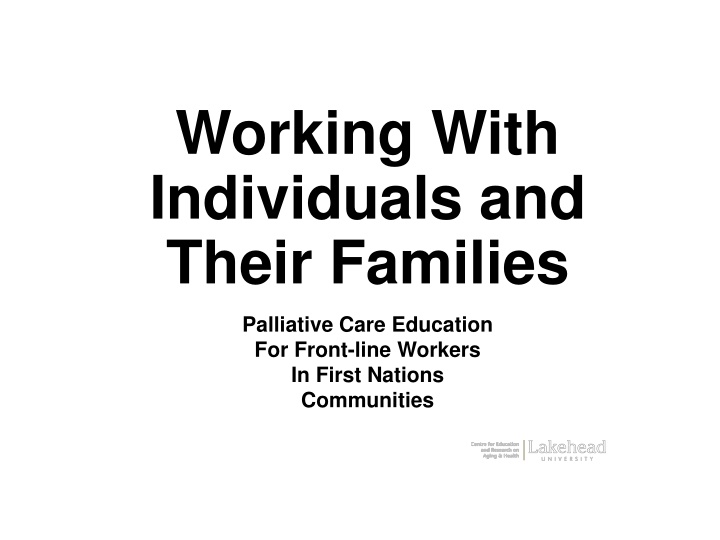
Supporting Individuals and Families in Palliative Care Education
Explore the experiences and priorities of very ill individuals, their needs, and how to provide support including emotional, physical, mental, and spiritual care. Learn effective communication strategies and the importance of acceptance and self-esteem in end-of-life care.
Download Presentation

Please find below an Image/Link to download the presentation.
The content on the website is provided AS IS for your information and personal use only. It may not be sold, licensed, or shared on other websites without obtaining consent from the author. If you encounter any issues during the download, it is possible that the publisher has removed the file from their server.
You are allowed to download the files provided on this website for personal or commercial use, subject to the condition that they are used lawfully. All files are the property of their respective owners.
The content on the website is provided AS IS for your information and personal use only. It may not be sold, licensed, or shared on other websites without obtaining consent from the author.
E N D
Presentation Transcript
Working With Individuals and Their Families Palliative Care Education For Front-line Workers In First Nations Communities cerah.lakeheadu.ca
The Experience of the Very Ill Person A very ill person has to face a number of changes, which include: Changes in their body Changes in the way they think about their beliefs Social changes Emotional changes Changes in their independence Changes in their abilities Changes in their relationships
Priorities may differ but individuals who are very sick have similar desires To be pain free To be alert and aware of what is happening To have the companionship of their family and friends To be accepted as the person they have always been To maintain their individuality Not to be alone Familiar possessions around them Cared for and remembered with love and respect Family continue living and loving after their passing
Needs of the very ill (1 of 2) Physiological Safety Belonging to not feel a burden Love expressions of affection, contact Understanding opportunity to discuss dying explanation about the disease and symptoms good symptom control a feeling of security to be needed
Needs of the very ill (2 of 2) Acceptance Self-Esteem regardless of mood and willingness to socialize involvement in decision- making, especially as physical dependence on others increases opportunity to give as well as receive M. Downing, Medical Care of the Dying, 1989
How can you provide support? Emotional Physical Mental Spiritual
How to help(1 of 2) Provide time and space for communication Communicate respect and acceptance Avoid withdrawing prematurely from the individual Accept that they are going through a difficult time
How to help(2 of 2) Communicate your commitment to provide care to the individual
Families Call it a clan, call it a network, call it a tribe, call it a family. Whatever you call it, whoever you are, you need one. -Jane Howard
Definition of families Families are a collection of individuals held together by, among other things, a sense among its members of commitment, history, and the promise of future. A family is who the person says it is, ie. Those closest to the person in knowledge care and affection. This may include: The biological family The family related by marriage or contract The family of choice and friend
Functions of the family Care Safety Provisions of resources Socialization Protection Procreation
The Familys Experience of Illness Life-threatening illness affects whole family system Family as deeply disturbed and upset as the person no family survives unchanged Some pull together and function better, some fall apart; old conflicts and resentments often surface
Family coping may depend on: past experience with loss that person s role in the family length of the illness presence of social supports Caring for the Terminally Ill: Honouring the Choices of the People, p.66 & 102 www.cerah.lakeheadu.ca
This is the prime directive for caring for the very ill: I will honour the choices of the person
Two major family tasks Shared acknowledgement of the reality of death and the shared experience of loss Reorganization of the family system and reinvestment in other relationships and life pursuits
Some other tasks Moving between denial to acceptance of illness Establishing relationships with healthcare professionals Meeting the needs of the person Maintaining a functional family unit Living with the emotions of grief www.cerah.lakeheadu.ca
More tasks Dealing with people outside the family Making decisions for the individual when they are not able Finding appropriate hope Accepting the family's new reality after the passing Taking care of themselves Caring for the Terminally Ill: Honouring the Choices of the People, p.102- 106
Common needs among families facing the passing of one of their members ( 1of 2) Care for those most closely involved in the person s care Information about the illness, treatment options and what they may expect Practical assistance with things such as child care, homemaking tasks, finances, etc. Locke, 1994
Common needs among families facing the passing of one of their members (2 of 2) Saying goodbye to their loved one For someone to really listen to their concerns and fears and to acknowledge that these may be difficult to express VALIDATION!! Locke, 1994
Family stresses Intense feelings Anticipatory mourning Uncertainty Physical or cognitive changes Family dynamics Changes in family roles Old family conflicts Concerns about quality of care
Some family members who may be at higher risk New couples People with dependent children When the person who is very sick is young People with low social support
Behaviours which may indicate that family members are experiencing extra stress Avoidance of the person Complete denial Increased alcohol or drug intake Severe depression Increased or excessive activity
How caregivers can provide support to families (1 of 2) Establish a relationship with the family - Advocacy - Authenticity - Responsiveness - Commitment and presence - Competence Realize that the anger is not directed at us but at the situation
How caregivers can provide support to families (2 of 2) Expect denial Give information Explore past methods of coping with loss Utilize other resources Know your own limits Help families start to grieve Caring for the Terminally Ill: Honouring the Choices of the www.cerah.lakeheadu.ca People, p.102








